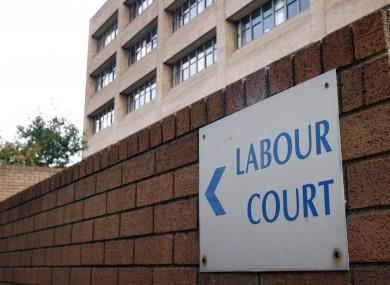South Africa – Labour Lawyer Patrick Deale suggests that the recent labour court ruling regarding O’Connor vs LexisNexis could significantly alter the employment prospects for individuals with criminal records. This ruling has the potential to unlock previously inaccessible opportunities.
However, Deale acknowledges that specific unresolved issues remain from the case, necessitating further examination by the court. Such ongoing refinement of the case could lead to additional changes in the future.
“I think the jury is in for the time being. It may go out again, as they say, for a further decision if it gets tested in a higher court. But it is favourable for people seeking jobs who have criminal records.”
The case revolves around O’Connor, an employee who applied for a remote position at LexisNexis, the employer. During the hiring process, he was asked about his criminal record, to which he openly admitted, affirming that there had been a conviction 20 years prior for theft, though it had since been expunged.
After an initial job offer, contingent on a criminal background check, the employer withdrew the offer upon discovering the past conviction was worse than previously stated. In response, the employee sought recourse through various bodies, including the CCMA and the labour court, alleging discrimination based on his historical criminal record.
Ultimately, he prevailed in court, ruling that he should be reinstated, and that the employer should honour the original job offer.
SMread| Freedom Flotilla volunteers undergo intense training
Issues of Trust and Loyalty in Employment
While the ruling could establish a precedent against the marginalisation and exclusion of individuals with criminal backgrounds from job opportunities, Deale suggests that employers should review applicants on a case-by-case basis. This is especially relevant if the person’s criminal history directly impacts the job’s essential duties or qualifications.
Thus, we should not interpret the ruling as a blanket decision. Each circumstance warrants consideration because trust and loyalty are crucial in an employment dynamic.
Deale emphasises that trust forms a foundation between an employer and an employee. Consequently, if an employer lacks trust in an individual, they should not feel compelled to hire them.
Regarding the case, Deale notes that the company harboured reservations about the employee’s trustworthiness, regardless of the job’s location or the relevance of the criminal history to the role as determined by the court. While acknowledging the complexities of the case, he stresses that subtleties still require further examination.
“An employer cannot be forced by a court to employ someone they don’t trust, no matter how it works, because it’s the employer’s mind that there are some reasonable or nationalities for the mistrust. They should be free to make the decision they are most comfortable with.”
